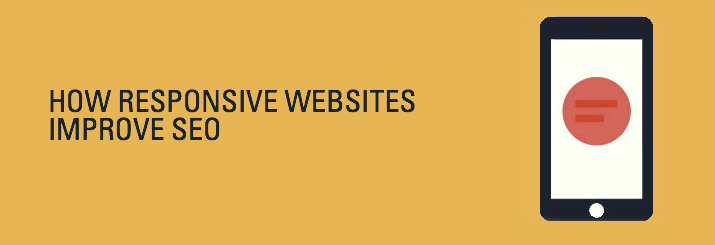Responsive web design is celebrated as the solution for web designers and developers to restructure the appearance of a website across all digital devices (e.g. desktop, laptop, tablet and mobile).
But there are other benefits to a responsive website aside from design and usability. SEO plays a huge role in the success of a website, and responsive websites are no different. Google has even stated their preference for ranking responsive websites ahead of non-mobile optimized websites.
In this post we’ll outline why responsive web design is becoming a major benefit to SEO, but first…
A quick run-down on “mobile optimized websites”
There are two types of websites that are optimized for mobile, they are:
1. Responsive website designs
2. Mobile only websites
The way you can check if a website is “mobile only” is if the URL starts with an “m.” (ex: m.utsandiego.com). The way to can check if a website is responsive is to drag a corner of your browser and see the website shift to smaller screen sizes (go ahead and test it with our Bop Design page).
All right, onto what makes responsive better for SEO:
Content is kept under the same URL
As stated above, mobile only websites change the structure of a URL (adding the “m.”), therefore requiring Google to scan two versions of a website when a user is conducting a web search. This is something Google would like to avoid doing in the future as it increases the risk of Google pulling inaccurate results for the user.
Improves bounce rate from mobile visitors
60% of adult cell phone owners now use their phones to access the Internet. In addition, 61% of people have a better opinion of brands when they offer a good mobile experience. Usability and positive user experience are the driving forces behind responsive web design. This positive experience also has impacts on website performance, SEO and how Google ranks you.
Take for example a user who visits a website from a Google search, is turned off by the design and promptly bounces from the site back to Google to continue searching. Google makes note of these bounces and ranks your website poorly because it’s gathering that you’re not an authoritative figure. Regardless of even if your website had helpful content and resources, a non-mobile-friendly design can disinterest users.
Improves search results and reduces duplicate content
If you’re thinking of creating a separate mobile website, you’re risking creating duplicate content across two websites. While it’s not severe enough to evoke a Google penalty, it does require every website change to be made twice. This increases the risk of human error and that Google could rank the native site higher than the mobile (or vice versa).
Link building all goes to one URL
If your marketing plan includes off-page SEO, link building is a critical component to that plan. When sharing thought leadership or resources from your website, responsive website design allows other sites to link to you using the same URL. If they’re linking of a page that is not supported by mobile, then you’re ruining the experience for your referral traffic.
Improved coding on the backend
Responsive websites are inherently better for SEO because of modern day coding improvements. Hiring a well-versed web developer is critical to successful responsive web design projects. A developer will ensure pages are easier to crawl for search engines, load faster on mobile devices and incorporate all the necessary design elements for the user experience.



